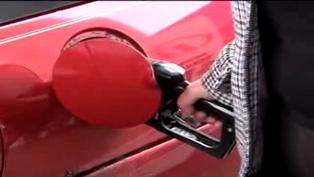
 WASHINGTON (AP) -- For the first time in a year, Americans have stopped spending more.
WASHINGTON (AP) -- For the first time in a year, Americans have stopped spending more.
Consumer spending failed to budge from April to May, evidence that high gas prices and unemployment are squeezing household budgets. When adjusted for inflation, spending actually dropped 0.1 percent last month, the Commerce Department reported Monday.
April's consumer spending figures were revised to show a similar decline when adjusting for inflation. It marked the first two-month decline in inflation-adjusted spending since April 2009.
Incomes rose 0.3 percent for the second straight month. But adjusted for inflation, after-tax incomes increased only 0.1 percent in May, after falling by the same amount in the previous month.
Neil Dutta, an economist at Bank of America Merrill Lynch, pointed out that inflation-adjusted, after-tax income is now slightly lower than it was in January.
"It was a very poor report all around," he said. "I think it's clear that higher gasoline prices are taking a bite out of consumer spending."
Wall Street took the dismal consumer spending report in stride. Investors seemed more focused on encouraging news on Europe's debt crisis - French banks agreed to let Greece repay some of its debt more slowly.
The Dow Jones industrial average gained more than 100 points in the midday trading. Broader indexes also increased.
Consumer spending is important because it accounts for 70 percent of economic activity. The spike in gas prices has forced many consumers to cut back on discretionary purchases, such as furniture and vacations, which help boost growth.
Fewer jobs and high unemployment have left workers with little leverage to ask for raises. And slow wage growth hurts the broader economy because consumers have less money to spend.
Economists note that the slowdown in spending was partly the result of temporary factors.
Auto purchases fell sharply in May. That lowered spending on long-lasting manufactured goods 1.5 percent, the steepest drop since September 2009. Dealers had limited supplies of many cars because of a parts shortage stemming from the crisis in Japan. U.S. factories are expected to begin producing more cars once Japan's factories resume more normal operations.
Gas prices peaked in early May at a national average of nearly $4 per gallon. Since then, they have dropped to a national average of $3.57 per gallon, according to AAA's daily fuel gauge. Cheaper gas will likely allow consumers to spend more freely this summer and fall. That should boost growth in the second half of the year.
The economy expanded at an annual rate of 1.9 percent in the January-March period. An Associated Press survey of 38 top economists predicts that the growth rate will be about 2.3 percent in the current April-June quarter. They are more optimistic for the second half of the year, saying growth should pick up to a 3.2 percent pace.
Still, growth must be stronger to significantly lower the unemployment rate. The economy would need to grow 5 percent for a whole year to significantly bring down the unemployment rate. Economic growth of just 3 percent a year would hold the unemployment steady and keep up with population growth.
Hiring slowed considerably this spring after a strong start at the beginning of the year. The economy created only 54,000 jobs in May, the lowest amount in eight months. That followed three months in which employers hired an average of 220,000 net new workers each month. The unemployment rate rose to 9.1 percent last month.
The consumer spending report also showed that prices are increasing across many goods and services. A key inflation gauge followed by the Federal Reserve rose 0.2 percent in May, after increasing 0.3 percent or higher in each of the previous five months.
But excluding the volatile food and energy categories, inflation rose 0.3 percent in May, the most since October 2009.
Americans boosted their savings a bit in May, keeping 5 percent of their after-tax income. That is up from 4.9 percent in April.
© 2011 The Associated Press. All rights reserved. This material may not be published, broadcast, rewritten or redistributed. Learn more about our Privacy Policy and Terms of Use.






















































































































































































































































































































